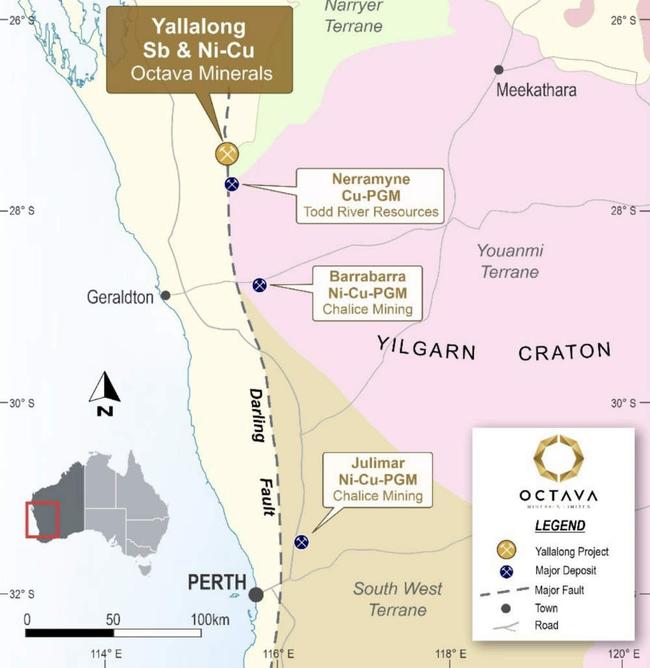Octava Minerals locks in contractor to drill antimony targets at Yallalong
Octava Minerals’ drill program will test the Discovery target, where historical drilling has intersected high-grade antimony, and the undrilled Central target.

Octava Minerals secures drill contractor for 3000m program to test two antimony targets at its Yallalong project
Historical drilling at Discovery has already returned high-grade antimony intersections
Drilling will also test the as-yet-undrilled Central target
Special Report: Octava Minerals has lined up a contractor to conduct a 3000m drill program at the end of this month at its high-grade Yallalong antimony project in WA’s Midwest region.
The program, which will start by the end of this month, will focus on the promising Discovery target.
Historical drilling at Discovery returned high-grade assays such as 7m grading 3.27% antimony from a down-hole depth of 12m including 1m at 11.5% from 18m (YRC16) and 3m at 6.83% antimony from 21m including 1m at 13.6% from 22m.
Octava Minerals (ASX:OCT) will also test the Central antimony target, which remains undrilled.
Antimony mineralisation at Yallalong, which lies on the western margin of the Yilgarn Craton, appears to occur within a 10km north-south striking mineralised corridor interpreted to be related to a structural corridor between the Darling and Woodrarung faults.
These faults act as conduits for mineralising fluids into the sedimentary rocks that are peripheral to mafic intrusive dykes, a well-known geological setting for antimony deposits worldwide.
Previous exploration identified four principal targets where antimony mineralisation was exposed at surface though only Discovery has seen any drilling – focused on shallow oxide material – to date.
Mineralisation at Discovery also remains open in several directions.

Drilling targets extensions of high-grade mineralisation
“We are really pleased to have secured our drillers to undertake the exploration drill program to outline further high-grade antimony at Yallalong,” OCT managing director Bevan Wakelam said.
“We will target lateral extensions of existing, known high-grade antimony mineralisation and also the underlying bedrock contacts.
“We also look forward to completing the geophysical survey that will provide us with better geological understanding of what’s below the surface along the antimony corridor.”
The detailed geophysical surveys are currently at 40% completion and on track to be completed within the next 10 days.
It will provide a clearer understanding of key structures such as sheers and faults while providing better definition of controlling lithological boundaries. It will also assist in identifying additional antimony drill targets.
This article does not constitute financial product advice. You should consider obtaining independent advice before making any financial decisions.


